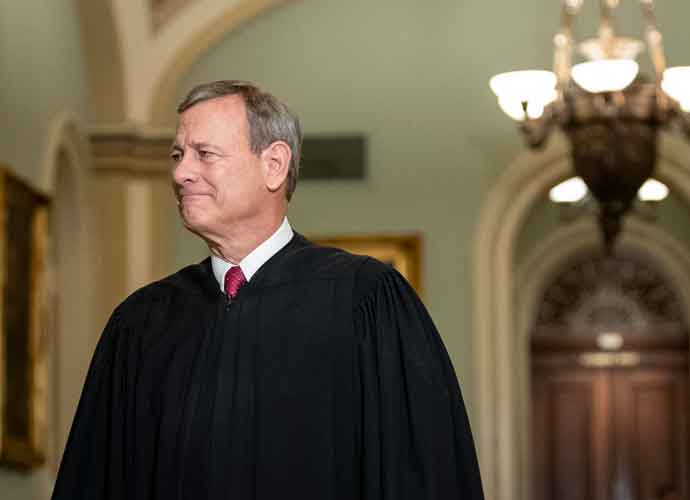Conrad Murray Tells His Story, Part Four: Life Without Michael, Jackson Family’s Reaction [VIDEO EXCLUSIVE]
Conrad Murray former personal physician to the late Michael Jackson, took over care for Jackson shortly after arriving at the UCLA Medical Center, where the pop legend was later pronounced dead. Murray describes the scene in the hospital shortly after Jackson’s passing and the arrival of his family in part four of his exclusive interview with uinterview.
Conrad Murray on Jackson Family’s “Superficial” Reaction To Michael’s Death
Murray recalls immediately thinking of Jackson’s children, Paris, Michael Jr., and Prince after their father’s death. Knowing that his passing would be especially traumatic for the children, he rounded up the children’s psychologists in the hospital, seeking counsel for how to best deliver the news. Grabbing Dileo, Jackson’s manager, Murray and the psychologists found the three children eaten pizza in a waiting room.
“They did cry, they stopped eating their pizza, they cried, we embraced them, gave them support,” Murray recounted to uInterview, before making a point to comment on the children’s braveness. “Then, there’s something about kids and their resilience, they recomposed, they went back to eating pizza.”
WATCH: Conrad Murray Tells His Story, Part Three: Michael Jackson’s Final Night
Paris then asked to be brought to her grandmother, Katherine Jackson, who had been among the first to arrive in the hospital, and was waiting in another room. Murray reveals that Katherine Jackson did not wish to see Michael Jacksons body, despite insistence on the part of Murray and the other doctors. “I guess I respected that because maybe in her mind she wanted to remember him alive,” he suggested. It was what Katherine Jackson further refused to do that shocked the doctor. Murray describes Paris as seeming as if she wanted an “embrace” from her grandmother; her grandmother did not oblige. Murray further describes the coldness of Katherine Jackson and the extended family towards the children, which concerned him.
WATCH: Conrad Murray Tells His Story, Part Two: Michael Jackson’s Addictions
“Lots of the other Jacksons came in, his brother Jermaine, cousins, Latoya came, she was there early also. None of them as I observed embraced any of the children. Walking around freely, certainly maybe lost in their own zones, I was concerned, like my goodness, what would happen to these children? From now, from tonight? Where would they sleep? When this day is over, where would they go?”
For Murray the strangeness continued. As more family members flowed in and out of the hospital, few asked questions of emotional concern, and merely attended to the formalities; he states that he worked with Randy Phillips and Jermaine Jackson to go over a statement to the press, one which asked for some privacy in this time of grief. But, Murray was amazed at the types of questions Jermaine asked him. “He mostly asked me…I mean sitting there I thought he would ask me more questions but he just talked about how he liked my accent, where I was from. Just odd. Very superficial.”
WATCH: Conrad Murray Tells His Story, Part One: Meeting Michael Jackson
Now several years and a prison sentence removed from the catastrophe, Murray is trying to put the events of that night behind him, and do some good in the process. “This has been a monumental catastrophe. Not just for me, but for my entire family, my children, my fiance, everybody. It’s been a disaster, to say the least,” he confessed. “But, what I can tell you is this: I would survive, it takes time, at this time I still do a lot of voluntary work in medicine.”
That day when Michael passed, the first person that arrived was his mother. The children weren’t there because they were brought by security, we had to tell them the news. The kids were down the room outside having pizza, before we went there I asked UCLA, ‘bring me your team of psychologists, children psychologists, because we have to get support here, we have to help the kids, this is not gonna be good news.’ They did supply the assistance and then I went to find DiLeo, Michael’s manager; the psychologists were also there standing outside and we broke the news to the children who were having pizza. They did cry, they stopped eating their pizza, they cried, we embraced them, gave them support. Then, there’s something about kids and their resilience, they recomposed, they went back to eating pizza and Paris asked to see her grandmother. Mrs. Jackson was supposed to be in a different room down the hall and that’s where we went to see Mrs. Jackson. We gave her the news — that Michael had passed — I took her over to the Emergency Room physician and we asked her if she wanted to see Michael. She said ‘no.’ We repeated the question a couple of times; she did not want to see him. I guess I respected that because maybe in her mind she wanted to remember him alive. Paris on the other hand, when she came to see her grandmother, I’m pretty sure in her heart she was looking for an embraced arm, some comfort from her grandmother. But, she didn’t. She did not touch the child. She did not even keep her close. No warmth at all. During that day, lots of the other Jacksons came in, his brother Jermaine, cousins, Latoya came, she was there early also. None of them as I observed embraced any of the children. Walking around freely, certainly maybe lost in their own zones, I was concerned, like my goodness, what would happen to these children? From now, from tonight? Where would they sleep? When this day is over, where would they go? I stayed and I worked with the family, I worked with the hospital, I worked with Randy Phillips and the lawyers who asked me to look at the last statement that Jermaine Jackson was going to announce to the press — that Michael had passed and ask for respect from the fans. I looked at it and changed a few items in their statement as to Michael’s passing and after they reviewed it to his satisfaction he made the statement. But, he mostly asked me...I mean sitting there I thought he would ask me more questions but he just talked about how he liked my accent, where I was from. Just odd. Very superficial.
This has been a monumental catastrophe. Not just for me, but for my entire family, my children, my fiance, everybody. It’s been a disaster, to say the least. But, what I can tell you is this: I would survive, it takes time, at this time I still do a lot of voluntary work in medicine. I check the charts of many patients from around the world who have health issues cardiovascular wise. I review the chart to make sure they get the right things done, I take them to specialists, to health centers around the country. I travel with them, sometimes I go from state to state, they may fly me to a state, I do not charge for my services. But, I go to them, I go to the hospitals and once we’ve decided that the patient probably requires open heart surgery, like in many cases, there’s almost like a standard price, when you don’t have insurance, which they offer from like 150,000 to 170,000 for an operation and I’m able to reduce that to about 30,000 or 31,000 for an eight day stay, all services, including diagnostics and professional help. So, it becomes manageable for these patients. So, I do that.
RELATED ARTICLES
Get the most-revealing celebrity conversations with the uInterview podcast!



![Conrad Murray Tells His Story, Part Four: Life Without Michael, Jackson Family’s Reaction [VIDEO EXCLUSIVE]](https://cdn-o9.uinterview.com/wp-content/uploads/2016/08/news-Conrad-Murray.jpg)
 Click here for the Kim Kardashian’s Most Revealing Selfies Slideshow
Click here for the Kim Kardashian’s Most Revealing Selfies Slideshow



Leave a comment